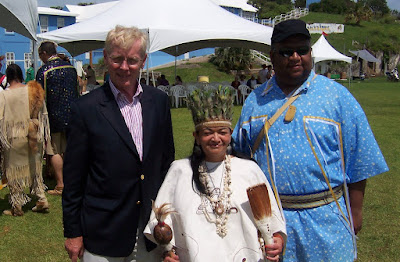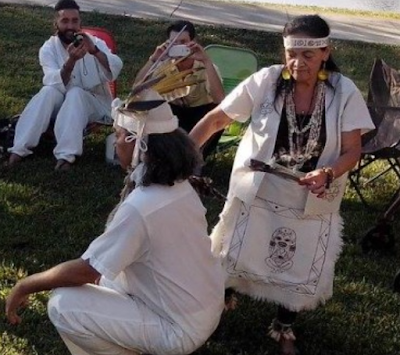IITC Delegation includes UCTP Representative, Tai Pelli
Geneva, Switzerland: From August 9 through 13, 2022 four delegates representing the International Indian Treaty Council (IITC) participated in the long-awaited review of racial discrimination in the United States (US) by the United Nations Committee on the Elimination of Racial Discrimination (CERD) during its 107th Session in Geneva Switzerland. CERD is the Treaty monitoring body for the International Convention on the Elimination of Racial Discrimination (ICERD), to which the US is a State Party.
The CERD’s review will assess US. compliance with its legally binding obligations under the ICERD to eliminate racial discrimination. This was the first review of the US since 2014 since the previous US administration chose to ignore the due date for submission of its report in November 2019. The current US report was submitted in June 2021, and representatives from 10 US government agencies participated in the review.
On August 9, the CERD provided the opportunity for Indigenous Peoples and Civil Society delegations to make statements about the US lack of compliance with the ICERD and to provide examples of unaddressed and unreported racial discrimination. Summer Blaze Aubrey, IITC Staff Attorney, summarized IITC’s written “Shadow Report” which addressed historic and ongoing violations of the Treaties concluded by the US with Indigenous Nations and the many forms of racial discrimination and human rights violations taking place as a result. There were also two informal breakfast meetings on August 10 and 11 in which Indigenous Peoples and Civil Society again had a chance to speak with Committee members regarding the US’s lack of compliance with the Convention.
The IITC also credentialed Chief Gary Harrison, Chickaloon Native Village Alaska, and IITC Consulting Attorney June Lorenzo, Laguna Pueblo and Diné. IITC Board member Tai Pelli also participated, credentialed under her organization, IITC affiliate the United Confederation of Taino People (UCTP). The Western Shoshone Defense Project and the Changing Woman Initiative were among the other Indigenous delegations represented at the session.
The Committee carried out its formal review and questioning of the US on August 11 and 12. Mr. Mehrdad Payandeh, CERD member from Germany, focused on Indigenous issues for the review. He questioned the US about key issues that had been raised by the Indigenous Peoples delegations, including:
- The negative impacts of colonialism on the enjoyment of human rights, highlighting that “human rights violations of Indigenous Peoples are a persistent legacy of colonialism.”
- The concrete implementation of the January 2021 Presidential memorandum on “Tribal Consultation and Strengthening Nation-to-Nation Relationships,” including efforts to give effect to Tribal Treaties.
- The US implementation of dialogues with Indigenous Peoples and traditional and Tribal leaders including Indigenous Peoples of insular territories, such as for example, the Taíno, as well as other unrecognized Indigenous Peoples.
- The failure of the US to implement CERD General Comment 23 regarding the full and non-restrictive implementation of Free, Prior and Informed Consent and the significant and direct impacts on Indigenous Peoples rights and way of life.
- The question of free, prior and informed consent and rights of Indigenous Peoples in regard to their land, territories, sacred sites, and way of life, including the adverse effects of the activities of the extractive industries including extraction of transition minerals, infrastructure projects, and the construction of border fences and walls.
- US response to early warning and urgent action procedures submitted by the Lipan Apache, Native Hawaiian, Gwich’in, Anishinaabe, and Western Shoshone Peoples.
- Concerns over jurisdictional complexities impacting cases of violence against Indigenous persons, especially in cases of sexual violence.
- Concerns over transnational corporations and private security companies and violations of human rights of Indigenous Peoples.
Based on his questions, it was clear to the IITC delegation that the Committee and Mr. Payandeh in particular had heard the concerns presented by Indigenous Peoples. IITC looks forward to the CERD’s concluding observations regarding the US which are expected to be released before the end of the current session on August 30th.
Tai Pelli reflected on the power of the Indigenous Peoples delegations’ contributions in Geneva: “The strong and united collaboration of all the Indigenous delegations made a victory out of our participation. The Committee members took into account all of the issues presented by Indigenous Peoples in their questions to the USA.”
The IITC’s alternative report submitted to the CERD can be found here. The United States’ periodic report can be found here.
Press Release courtesy of the IITC







.png)











